-
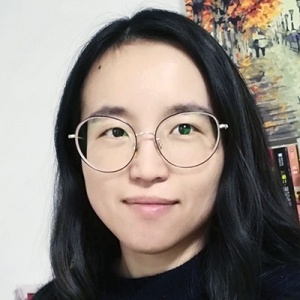
Shuangshuang Chen
Tongji University, China -
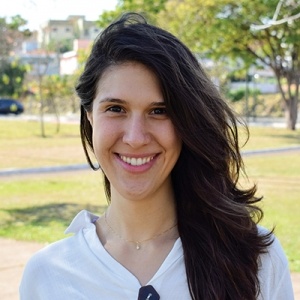
Camila Manoel Crnkovic
University of São Paulo, Brazil -
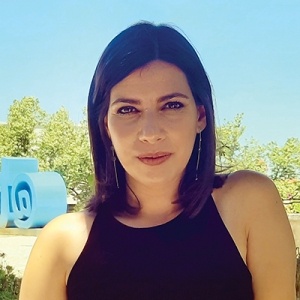
Carina Isabel Correia Crucho
Instituto Superior Técnico, Portugal -
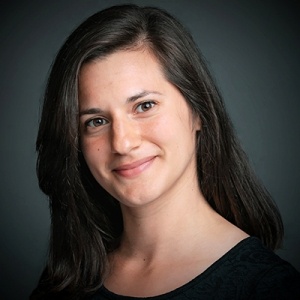
Maria Emilia Dueñas
Newcastle University, United Kingdom -
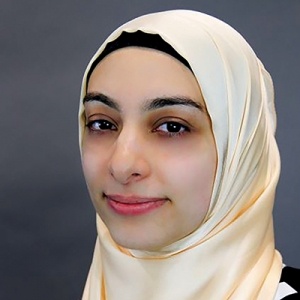
Parinaz Fathi
University of Illinois at Urbana-Champaign, United States -
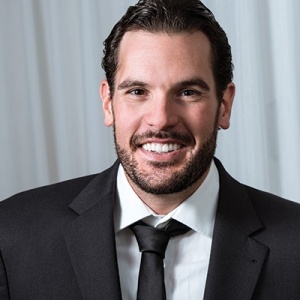
Aurelien Forget
Albert Ludwig University of Freiburg, Germany -
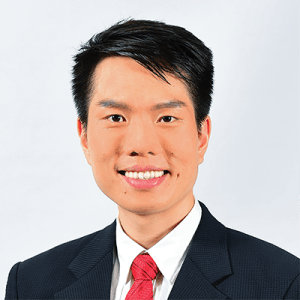
Fun Man Fung
National University of Singapore, Singapore -
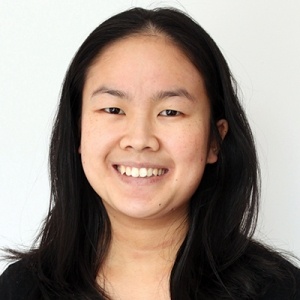
Carol Hua
University of Melbourne, Australia -
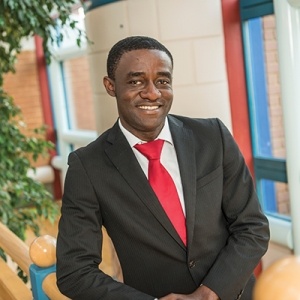
David Chukwuma Izuogu
University of Cambridge, United Kingdom -
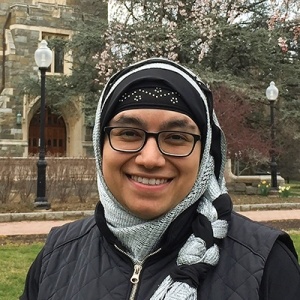
Safia Jilani
Georgetown University, United States -
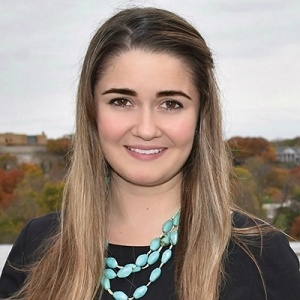
Pamela Johnson
University of Kansas, United States -
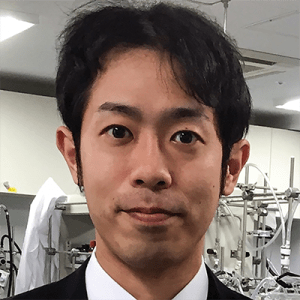
Yu Kitazawa
Shinshu University, Japan -
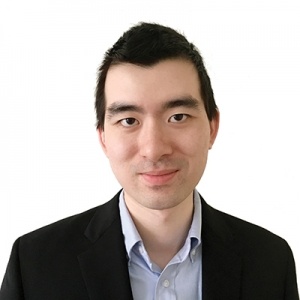
Johnny W. Lee
Stony Brook University, United States -
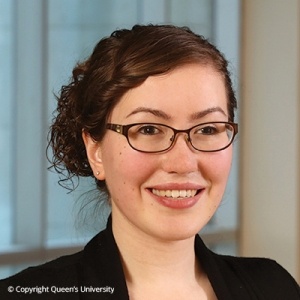
Caitlin E. Miron
McGill University, Canada -
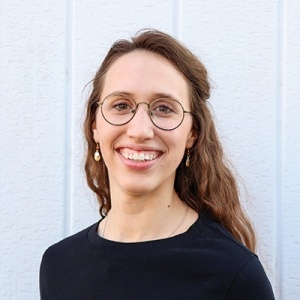
Monica L. Ohnsorg
University of Minnesota-Twin Cities, United States -
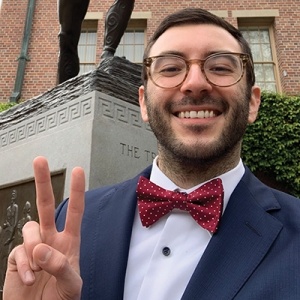
Nicholas Orchanian
University of Southern California, United States -
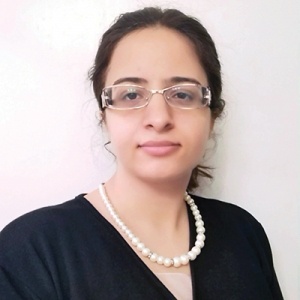
Fatemeh Ostadhossein
Stanford University, United States -
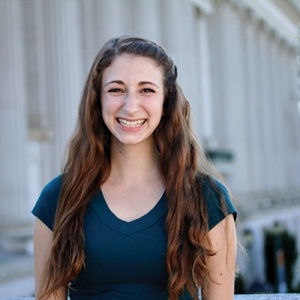
Rebecca Pinals
University of California, Berkeley, United States -
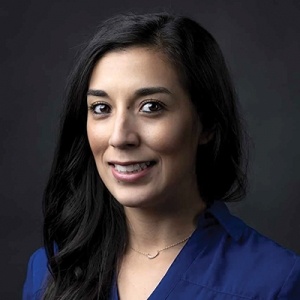
Cassandra Reese
Los Alamos National Laboratory, United States -
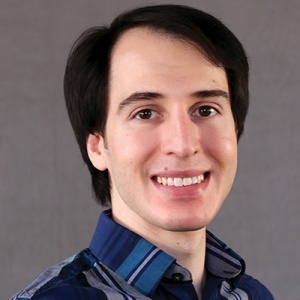
Andrew S. Rosen
Northwestern University, United States -
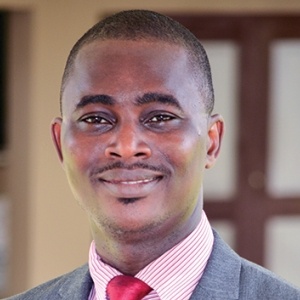
Ekundayo Stephen Samuel
University of Ibadan, Nigeria -
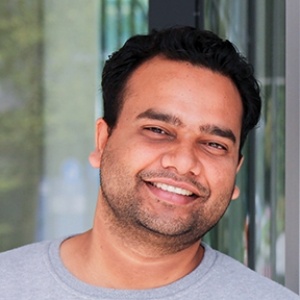
Mohit Saraf
Indian Institute of Technology Kanpur, India -
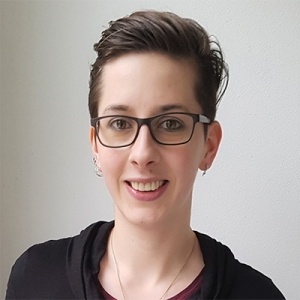
Nadja A. Simeth
University of Groningen, Netherlands -
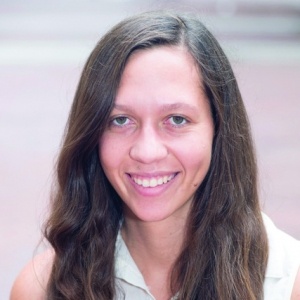
Makeda Tekle-Smith
Princeton University, United States -
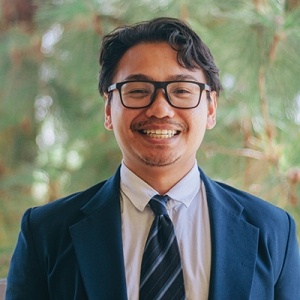
Zachary Thammavongsy
Chapman University, United States -
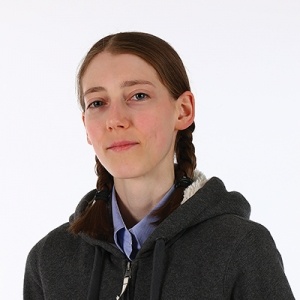
Agnes Eva Thorarinsdottir
Harvard University, United States -
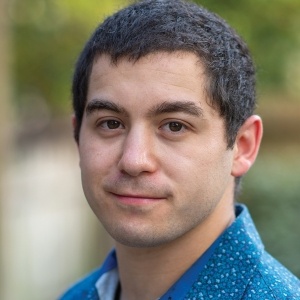
Joshua Tropp
University of Southern Mississippi, United States -
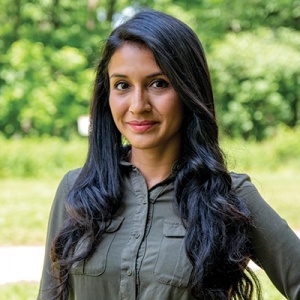
Rosa Vásquez
University of Michigan, United States -
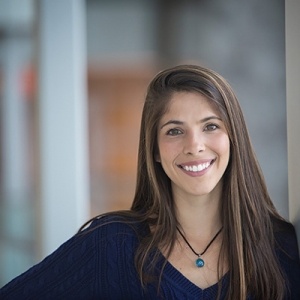
Juliana Ladeira Vidal
Memorial University of Newfoundland, Canada -
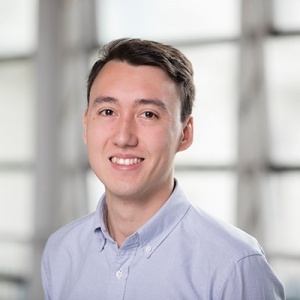
Jonathan Wojciechowski
Imperial College London, United Kingdom
Shuangshuang Chen
Shuangshuang is a postdoc in the lab of Prof. Qinghua Lu at Tongji University, supported by the Chinese Postdoctoral Program for Innovative Talents. She received her Ph.D. degree from Shanghai Jiao Tong University in 2017. The same year, she was selected to participate the Lindau Nobel Laureate Meeting. Her interdisciplinary research focuses on multiscale cell platforms for biological research and regenerative medicine. As basic units, cells can be treated into flexible geometries, spanning from single cell, cell sheet to 3D spheroids.
Camila Manoel Crnkovic
Camila received her Ph.D. degree in pharmacognosy from the University of Illinois at Chicago with a research focus on natural product drug discovery. She then developed postdoctoral research in Brazil at the University of São Paulo, where she investigated fungal natural products using genomics and metabolomics. Camila has recently been appointed as an Assistant Professor at the University of São Paulo, School of Pharmacy. Her research focuses on discovering new drug candidates as well as improving drug discovery with biodiversity and technology.
Carina Isabel Correia Crucho
Carina is a junior researcher at the Instituto Superior Técnico, Portugal. In 2015, she obtained her Ph.D. degree in chemistry at NOVA School of Science and Technology. Her research is focused on the integration of stimuli-responsive units in nanomaterials, including silica and polymeric nanoparticles. Besides her academic activity, Carina is a board member of the Young Chemists Group of the Portuguese Chemical Society and Treasurer and Portuguese Delegate at the European Young Chemists Network. Among her accomplishments is the Portuguese Young Chemists Award, a L'Oréal Award for Women in Science and the International Visitor Leadership Program.
Maria Emilia Dueñas
Maria Emilia was born in Quito, Ecuador. She completed her B.S. in chemistry at the Universidad San Francisco de Quito in 2013. In 2018, she obtained her Ph.D. degree in analytical chemistry from Iowa State University after working in Dr. Young Jin Lee’s group. Her research focused on advancing the field of metabolomics using high-spatial resolution MALDI mass spectrometry imaging. Maria Emilia is currently a Marie Skłodowska-Curie postdoctoral fellow at Newcastle University in Dr. Matthias Trost’s lab. She is developing MALDI-TOF mass spectrometry techniques to characterize metabolites in high-throughput cellular drug discovery assays. Outside the lab, she enjoys trail and fell running.
Parinaz Fathi
Parinaz is a National Physical Science Consortium graduate fellow and Bioengineering Ph.D. candidate at the University of Illinois, co-advised by Professor Dipanjan Pan and Dr. Mandy Esch. She received her B.S. degree in mechanical engineering from the University of Maryland, and her M.S. degree in bioengineering from the University of Illinois. Her research focuses on developing biodegradable nanoparticles for bioimaging and cancer therapy, as well as developing microfluidic organ-on-a-chip models to evaluate nanoparticle-tissue interactions. Outside of research, Parinaz enjoys practicing calligraphy, conducting STEM outreach and creating scientific art.
Aurelien Forget
Aurelien obtained his Master of Polymer Chemistry from the University Pierre et Marie Curie in Paris, France, in 2009. He then moved to Germany, where he was awarded his Ph.D. with Summa Cum Laude at the University of Freiburg in 2014. Later that year, Aurelien started as a research fellow at the University of South Australia. In 2017, he was recruited as a lecturer in chemistry at the Queensland University of Technology in Brisbane and 2018, he went back to the University of Freiburg as a postdoc where he is currently work on developing polysaccharide-based biomaterials for biomedical applications.
Fun Man Fung
Fun Man is a chemistry instructor well-known for supercharging science education with an innovative approach—immersive learning experience. He pioneered the IPOV (Instructors’ Point of View) approach to help learners understand science better. By using GoogleGlass and GoPro to film “how-to” videos, Fun Man reimagined laboratory teaching by allowing students to see through the experts’ lenses in learning scientific techniques. Data suggests that his creative use of the lightboard to record 133 units of flipped lectures have strengthened student engagement and improved self-directed learning. Fun Man’s original application of the 360˚ camera and drone to curate student-centered virtual field-trips is inspirational to educators.
Carol Hua
Carol is currently a McKenzie Fellow at the University of Melbourne studying chiral supramolecular inorganic materials and the role of host-guest interactions in solid-state materials. She obtained her Ph.D. under the supervision of A/Prof. Deanna D’Alessandro at the University of Sydney on the development of multifunctional redox-active materials for which she was awarded the RACI Cornforth Medal for the best thesis in the chemical sciences in Australia. Carol then undertook two postdoctoral researcher positions overseas at Northwestern University, United States, and the University of Limerick, Ireland, supported by the prestigious American-Australian Association and Endeavour Fellowships.
David Chukwuma Izuogu
David was born in Agbor, Delta Sate, Nigeria, and obtained his BSc in pure and industrial chemistry jointly from the University of Nigeria, Nsukka, and Hokkaido University, Japan. He went ahead to do two separate master’s degrees in inorganic chemistry and nanoscience of advance metal complexes at the University of Nigeria, Nsukka, and Tohoku University, Japan, respectively. He is currently doing a Ph.D. in computational chemistry at the University of Cambridge. David uses computational and experimental techniques to investigate molecular designs and interactions around lanthanide ions needed for enhanced single-molecule magnets (SMM) behaviour for applications in quantum computing, information processing and data storage under the supervision of Dr. Alex Thom. He is leading a series of capacity building through science education/research in developing countries through a non-profit organization he founded, the Africa of Our Dream Initiative. His interest in entrepreneurship has seen him pursue new start-ups to address global problems like counterfeits across industries while in Cambridge.
Safia Jilani
Safia is a Ph.D. candidate in chemistry at Georgetown University. She graduated with a B.S. in chemistry with a focus on secondary education from Dominican University in River Forest, IL. Her research involves synthesizing nanoparticle electrocatalysts for the ethanol fuel cell reaction and investigating the reaction mechanism using in-situ spectroelectrochemical techniques. She is passionate about improving access, inclusion and quality of chemistry education. This includes learning in the classroom, mentorship in research, educational support structures and professional development. Outside the lab, she loves traveling, running and trying new things!
Pamela Johnson
Pamela is passionate about collaborative research at the intersection of material science and biotechnology. She received her B.S. in chemical engineering from Bucknell University. Pamela is currently a Bioengineering Ph.D. student at the University of Kansas working with Dr. Jenny Robinson on emulsion electrospun tissue scaffolds for the targeted, controlled delivery of hormones. She has been fortunate to receive support for this research through a NIH Pharmaceutical Aspects of Drug Delivery Biotechnology training grant.
Yu Kitazawa
Yu obtained his B.Eng. from Tokyo Institute of Technology under supervision of Professor Yasuyuki Tezuka studying polymer chemistry. He received his M.Pharm. and D.Pharm. degrees from the University of Tokyo under supervision of Professor Masanobu Uchiyama. Following his research as a postdoctoral fellow at the University of Tokyo, he was a JSPS Overseas Research Fellow at IOCB in the Czech Republic with Professor Josef Michl where he continued his research of boron clusters. His research is targeted toward developing new molecules based on boron clusters in the direction of novel catalyst, electro/ionic material and pharmacotherapy.
Johnny W. Lee
Johnny was born and grew up in New York, United States. He obtained his B.Sc. degree in 2015 at Stony Brook University and is soon to complete his Ph.D. under the supervision of Prof. Ming-Yu Ngai at the same university. His doctoral work has focused in the area of modern fluorine chemistry, in which he designed and developed novel perfluoroalkoxylation strategies of aromatic compounds under visible-light photoredox conditions. Johnny’s research interests are in catalytic chemistry and how it can be used to aid discovery of new therapeutics.
Caitlin E. Miron
Caitlin completed a BScH in biochemistry and a Ph.D. in supramolecular chemistry at Queen’s University. Her graduate work in the Petitjean group on targeted nucleic acid recognition was recognized by the Mitacs Award for Outstanding Innovation. In 2019, she joined a collaboration between Cyclenium Pharma and Université de Sherbrooke as a Mitacs Elevate postdoctoral fellow, driving the lead optimization of macrocyclic compounds targeting the delta opioid receptor. She is currently a postdoctoral fellow in medicinal chemistry in the Moitessier group at McGill University, where her research has recently pivoted to include the computer-guided development of drug candidates for COVID-19 therapeutics.
Monica L. Ohnsorg
Monica is currently an NSF Graduate Research Fellow in the Department of Chemistry at the University of Minnesota-Twin Cities co-advised by Professors Theresa Reineke and Frank Bates. Her research focuses on using bottlebrush polymers to increase the water-solubility of small-molecule pharmaceutics for oral drug delivery. In 2016, she received her B.S. in chemistry from Hope College. There, as a Beckman Scholar, she researched metal-organic framework thin films in the lab of Professor Mary E. Anderson and was awarded the 2016 ACS Undergraduate Award in Inorganic Chemistry. Outside the lab, Monica enjoys painting and hiking the shores of Lake Superior.
Nicholas Orchanian
Nick grew up in Waltham, Massachusetts, before moving to Los Angeles in 2011 to attend the University of Southern California. During his B.Sc. studies at USC, Nick explored molecular spectroscopy to probe fundamental processes in photosynthesis under the mentorship of Prof. Jahan M. Dawlaty. In 2015, Nick joined the group of Prof. Smaranda C. Marinescu at USC to pursue his doctoral studies. His thesis work focused on the development of electrocatalytic molecules and materials for solar energy conversion and artificial photosynthesis, and he received his Ph.D. in chemistry in 2020. Outside the lab, Nick is passionate about science outreach, expanding literacy and diversifying academia.
Fatemeh Ostadhossein
Fatemeh is currently an NIH Cardiovascular Imaging postdoctoral fellow at Stanford University. She completed her Ph.D. and M.S. in bioengineering at the University of Illinois at Urbana-Champaign and her B.S. and first M.S. in materials science and engineering at Sharif University of Technology in Iran. She was also briefly a Beckman Postdoctoral Fellow at UIUC. The overarching goal of her research is to achieve comprehensive solutions to biomedical challenges via fundamentally engineering biomaterials/ nanomaterials by integrating her background in materials engineering, bioenegineering and nanomaterials with stem cell biology and cardiac disease.
Rebecca Pinals
Rebecca is an NSF Graduate Research Fellow pursuing her Ph.D. in UC Berkeley’s Chemical and Biomolecular Engineering Department. She received her B.S. with honors in chemical engineering from Brown University in 2016. Her current research with Prof. Markita Landry focuses on designing fluorescent carbon nanomaterial-based sensors to probe biological systems. Rebecca leads local science outreach programs that encourage primary school participation in STEM. She is passionate about mentoring student researchers and teaching, for which she has received numerous teaching awards. Outside the lab, Rebecca enjoys playing violin, dancing, hiking and biking.
Cassandra Reese
Cassandra is a postdoctoral research associate at Los Alamos National Laboratory. She focuses on 3D printing of advanced, multifunctional materials for national security applications. She received her Ph.D. in polymer science and engineering from the University of Southern Mississippi in 2019 under Prof. Derek Patton and her B.A. in chemistry from the University of San Diego in 2014 under Prof. Peter Iovine. She is a strong advocate for women in science and engineering (WISE), where as President of WISE she raised $6,600 for a WISE conference. Additionally, she was selected for the 2019 Younger Chemist Committee Leadership Development Workshop.
Andrew S. Rosen
Andrew is a Ph.D. candidate in the Department of Chemical and Biological Engineering at Northwestern University, co-advised by Prof. Randall Snurr and Prof. Justin Notestein. His research employs high-throughput quantum-chemical screening methods to predictively identify and design promising metal-organic framework materials for a wide range of applications, including the upgrading of natural gas resources and the separation of oxygen from air. In addition to being a CAS Future Leader, Andrew is a National Defense Science and Engineering Graduate Fellow and a Ryan Fellow of the International Institute of Nanotechnology. Andrew obtained his B.S. in chemical engineering from Tufts University.
Ekundayo Stephen Samuel
Ekundayo had his first degree in veterinary medicine and master’s in biochemistry from the University of Ibadan, Nigeria. He is currently a doctoral student in the laboratory of Professor Oyeronke Odunola in the Department of Biochemistry, University of Ibadan. He is developing alternative therapies for either preventing or indeed treating cancer by isolating and characterising bioactive compounds from medicinal plants. His research is also addressing the lack of mechanistic information on the role of those active compounds in cancer. Ekundayo is a University of Ibadan Scholar (graduated with distinctions in veterinary medicine) and a 2017 Commonwealth Split-site Ph.D. Scholar to the University of Bath, United Kingdom.
Mohit Saraf
Mohit currently holds a position of Project Scientist in the Department of Chemical Engineering at the Indian Institute of Technology (IIT) Kanpur. He received his Ph.D. in metallurgy engineering & materials science from IIT Indore and bachelor’s-master’s (integrated) in nanotechnology from University of Rajasthan, Jaipur. He has won several national and international accolades including Fulbright-Nehru Postdoctoral Fellowship (2020-2021) and Green Talents award (2018). His outstanding publications record, peer reviewing activities for various reputed journals and other achievements highlight his scientific skills and leadership qualities. His research interests are developing different families of nanomaterials and composites for electrochemical energy storage (supercapacitors and batteries).
Nadja A. Simeth
Nadja studied chemistry in Regensburg, Germany, and did her master’s project with Morton Grøtli at the University of Gothenburg, Sweden. She pursued her doctorate studies with Burkhard König at the University of Regensburg and graduated in 2018 summa cum laude after a short research stay with Maurizio Fagnoni at the University of Pavia. Currently, she is working as a postdoc in the group of Ben Feringa at the University of Groningen supported by a Feodor-Lynen Fellowship of the Humboldt Foundation. She is interested in the design of smart drugs, biochemical probes and photoresponsive supramolecular architecture.
Makeda Tekle-Smith
Makeda graduated from Pomona College with a bachelor’s degree in chemistry in 2014. While at Pomona, she worked in the lab of Professor Cynthia Selassie investigating new antimalarial therapeutics. She then went on to pursue her doctorate at Columbia University under the supervision of Professor James Leighton. Her Ph.D. focused on the total synthesis of non-aromatic polyketides and their development as novel antibody-drug conjugate warheads. Makeda is carrying out her postdoctoral work with Abigail Doyle in the Princeton University Department of Chemistry. Her work in the Doyle lab encompasses developing new synthetic methods utilizing photoredox catalysis to generate highly reactive radicals under mild conditions.
Zachary Thammavongsy
Zachary is a Laotian-American chemist. He is currently the Grand Challenge Initiative Fellow at Chapman University in the laboratory of Professor Allegra Liberman-Martin. He received his Ph.D. in chemistry from the University of California, Irvine in the laboratory of Professor Jenny Yang. He graduated with a B.S. and M.S. in chemistry from Western Washington University in the laboratory of Professor John Gilbertson. His current research focuses on synthesizing silylium catalysts for hydroboration reactions. Also, Zach is exploring the field of chemical education research by crafting chemistry games for use in chemistry classrooms. He is the founder of d-Orbital Games.
Agnes Eva Thorarinsdottir
Agnes received a B.S. with honors in chemistry from the University of Iceland in 2015 and a Ph.D. in chemistry from Northwestern University in 2019, where she worked on manipulating the electronic structure of transition metal compounds to design bioresponsive magnetic resonance imaging contrast agents and metal-organic magnetic materials under the guidance of Prof. Dave Harris. Since January of 2020, she has been a postdoctoral fellow in the lab of Prof. Daniel Nocera at Harvard University. Her research in the Nocera group focuses on developing sustainable metal oxide-based oxygen evolution catalyst.
Joshua Tropp
Joshua is currently a postdoctoral fellow at the University of Southern Mississippi, where he recently earned his Ph.D. in polymer science & engineering in the lab of Prof. Jason Azoulay. His thesis work utilized conjugated materials for the optical and electronic detection of environmental pollutants in complex aqueous environments. His research interests include chemical sensing, polymer synthesis and supramolecular chemistry. Joshua obtained his ACS-Certified B.A. in chemistry at Washington & Jefferson College.
Rosa Vásquez
Rosa is a Peruvian chemical biologist and 2019 National Geographic Explorer. She holds a double degree in biochemistry and molecular biology and is currently completing her Ph.D. in chemical biology at the University of Michigan focusing on engineering microbial-derived antibiotics and enzymes to expand our chemical toolbox for the generation of new bioactive molecules. Rosa serves in multiple leadership roles, including student representative in the Program in Chemical Biology Operating Committee where she contributes to shape the student academic experience and provides insightful feedback on curriculum development. Additionally, mentoring students has become a valuable component of her graduate studies.
Juliana Ladeira Vidal
Juliana is a Ph.D. candidate in the Green Chemistry and Catalysis Group at Memorial University of Newfoundland, supervised by Dr. Francesca Kerton. She previously completed her B.Sc. and M.Sc. at Universidade Federal de Juiz de Fora, in Brazil. Juliana is an executive member of the Network of Early-Career Sustainable Scientists and Engineers (NESSE), and a communications intern for the Beyond Benign organization. In her current research, Juliana is investigating new applications for biochar, a material produced within the forestry, wood and paper industries that has the potential to sequester greenhouse gases and mitigate climate change effects.
Jonathan Wojciechowski
Jonathan is a research associate working with Professor Molly Stevens in the Department of Materials at Imperial College London. He completed his Ph.D. in supramolecular chemistry at the University of New South Wales, Sydney in 2018 under the supervision of Professor Pall Thordarson. His Ph.D. work was focused on understanding the self-assembly of short self-assembled peptides. His current research is centred around the development of Raman active compounds for biosensing and 3D printed biomaterials for applications in regenerative medicine with the UK Regenerative Medicine Program (UKRMP).
